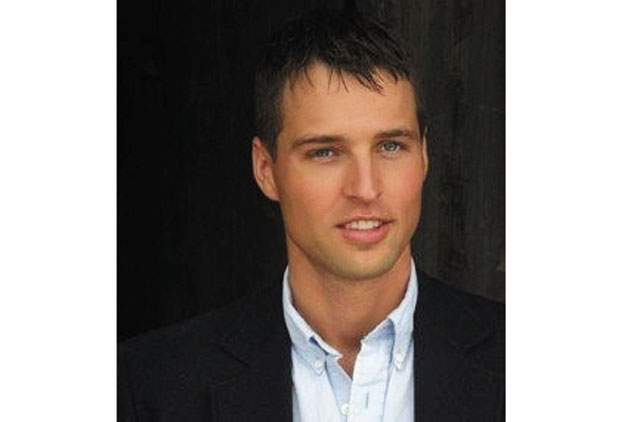
The Great Place to Work Institute® (GPTW) has been listening to employees worldwide and evaluating employers since 1980 in order to understand what makes a workplace atmosphere truly motivating.
The first affiliate began in the US and GPTW is best known for the ‘US 100 Best Companies List’, which is published each year in Fortune magazine. The organisation opened its UAE affiliate in early 2010 in response to increasing requests from companies located in the region.
“Great workplaces are not born, they are developed,” says David Robert, partner and director at the GPTW institute in Dubai. He tells us more about the survey and its results.
What makes the perfect corporate place to work?
Robert: No two great workplaces are alike. However, our 25+ years of research shows that there is a distinct similarity to all great workplaces, which is a high degree of trust. In a great workplace, trust manifests itself in every relationship. In a high-trust environment, people cooperate and collaborate, leading to positive workplace interactions, higher profits, and greater productivity.
How do elements such as work-play balance, empathy, incentive, motivation, and team spirit contribute towards making a place great to work?
Robert: Our assessment process examines trust within three key relationships each employee has: the relationship with their manager, their job, and their colleagues. Great workplaces focus efforts on developing each of these three relationships. How they go about doing this differs from company to company, but GPTW does share best practices to help companies think about how they can begin to enhance the level of trust within their organisation.
What criteria does your institute employ to evaluate a company? How do organisations know about and apply to qualify for the award?
Robert: Any company that has more than 50 employees in the UAE is welcome to submit a registration to be assessed. We are now taking applications for this year’s list process. Yes, the list is an annual process. Our next list will be published in January 2012. The registration form can be found on our website at: http://greatplacetowork.ae/best/nom-form.php
The process consists of two parts. Part one includes an anonymous survey of the company’s employees, called the Trust Index®. The second part includes a survey of management, called the Culture Audit®. The Trust Index and Culture Audit are then analysed and scored by a team of highly experienced consultants. The Trust Index makes up two-thirds of the final score and the Culture Audit one third. So, in essence, it is a company’s employees who determine whether a company makes the list.
All registered companies have to meet minimum thresholds to make the grade. Our 2011 ‘Top Companies List’ in the UAE is a statistically significant representation of the companies in the market. We begin the survey process in February each year and close the process in late October. Evaluations occur in November and December, with the final list being decided in late December.
The survey process is quite simple with most companies and employees moving through the survey process in just a few weeks.
Is there direct interaction with the employees to get an honest appraisal of their organisation?
Robert: Companies announce the survey process internally, indicating that their responses are anonymous. Since we manage the data collection, employers do not have access to raw data. In fact, we do not share any raw data nor do we share aggregated responses for departments with less than five employees. These are practices that all affiliates uphold, so we are recognised worldwide as having the most credible workplace assessment process.
Is this process vetted by an international evaluating body?
Robert: GPTW handles all of its own assessments. Assessors are highly trained and experienced. Each part of the evaluation is handled by a different team and their ratings are not shared until the final stages of the assessment. This enhances the objectivity and fairness of the evaluation process.
Who is responsible for achieving the status of being a great workplace? Is it the management or the employees? What is the catalyst?
Robert: Ultimately, all employees at all levels must be engaged in making the company
a great place to work. Remember, great places to work have a high degree of trust – and trust is built through consistency. One similarity of great workplaces is the unwavering commitment of the CEO and senior leadership with making the necessary investment in their employees. When employees see this commitment being displayed throughout the company, they are far more likely to be engaged.
Is it possible for an organisation to go backwards, having reached excellence?
Robert: Great workplaces are not born, they are developed. I don’t think there is any existing ‘great’ workplace that feels its job is done. Companies that experience high degrees of trust for a long time absolutely benefit from heightened levels of efficiency within their organisations, but they continue to remain focused on trying to understand their employees more deeply in an effort to continuously improve.
Would you say there is a need for a monitoring system so the reward is not undervalued with time, because we know corporate habits die hard?
Robert: In essence, our annual list process is a monitoring system. As seen in the US and other markets, not every company remains on the list year after year and there’s certainly a shifting of the top companies based on the current year’s assessments. Companies committed to becoming and remaining great workplaces use our list process as a way to monitor the effectiveness of their internal changes.
Does homogenous quality or cultural diversity add or detract from an organisation’s ability to be a ‘great place to work’?
Robert: There’s a difference between examining the leanness and quality of a company’s operations and examining the quality of a company’s workplace. Operations quality and workplace quality are not mutually exclusive. Cultural diversity is an important element in any workplace. With the global economy expanding and as the need for human resources increases, it will become more important that companies focus on diversity. Attention to diversity is a sign of respect, and respect is one of the dimensions in our assessment tool.
Inside info
Companies that want to know more about how they are doing in these areas are welcome to register for the 2012 Top Companies List. For more details, please contact
Dr Michael Burchell at mburchell@greatplacetowork.com.












